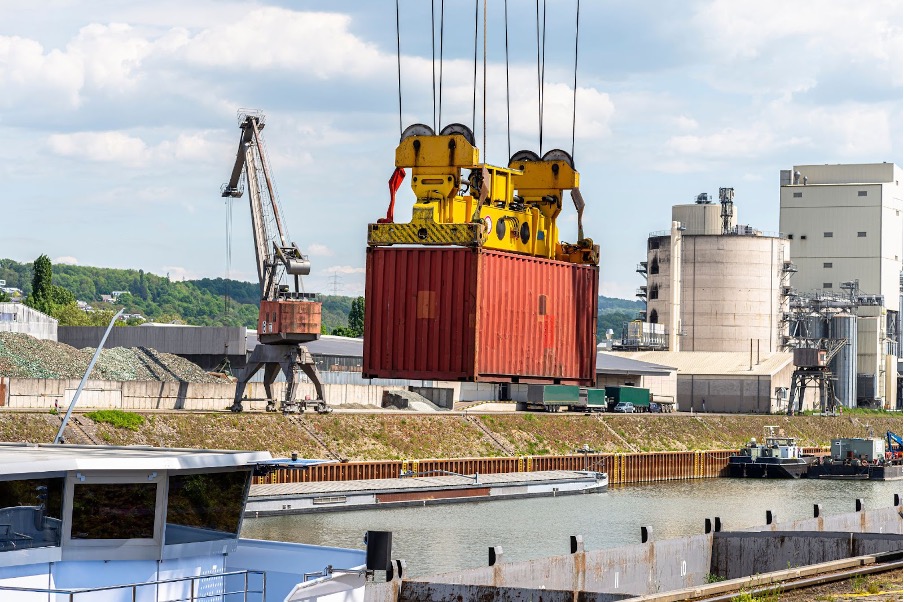Exploring the Advantages and Limitations of Less Than Container Load Shipping

Are you a business owner in Malaysia who frequently imports goods from China? If so, you’re likely familiar with the challenges and considerations that come with shipping your products across international borders. One shipping option that deserves your attention is Less Than Container Load (LCL) shipping. In this article, we will delve into the advantages and limitations of LCL shipping, and how it can benefit your business.
What is Less Than Container Load (LCL) Shipping?
Imagine you’ve just placed an order for a variety of products from multiple suppliers in China. However, your shipment doesn’t fill an entire shipping container. This is where LCL shipping comes into play. LCL shipping allows you to share container space with other importers, reducing costs and providing flexibility for smaller shipments. Let’s explore the advantages of LCL shipping and how it can optimize your logistics process.
Advantages of Less Than Container Load (LCL) Shipping
Cost Efficiency and Flexibility
One of the key advantages of LCL shipping is its cost efficiency. Instead of bearing the expenses of an entire shipping container, you only pay for the space your goods occupy. This is particularly beneficial for small and medium-sized businesses in Malaysia that may not have large shipment volumes. By sharing container space, you can significantly reduce shipping costs, making it an economical option.
LCL shipping also offers flexibility in terms of shipment size. Whether you have a small parcel or a slightly larger shipment, LCL shipping allows you to transport your goods without the need for a full container. This flexibility is ideal for businesses that require regular shipments but don’t have the volume to fill an entire container every time.
Consolidation for Efficiency
Another advantage of LCL shipping is the consolidation service it offers. With LCL, you can consolidate multiple smaller shipments into one container. This process involves grouping shipments from different suppliers together, which not only optimizes space but also streamlines the customs clearance process.
Additionally, some logistics service providers offer parcel consolidation services specifically tailored for LCL shipping. This service allows you to purchase goods in small parcels from various suppliers and have them consolidated into a single shipment. By leveraging this service, you can further reduce costs and simplify your logistics operations.
Door-to-Door Delivery and Custom Clearance
When opting for LCL shipping, it’s crucial to consider the convenience it offers. Some logistics service providers ensure a seamless shipping experience by providing door-to-door delivery and custom clearance services as part of their LCL package. This means that once your shipment arrives in Malaysia, it will be delivered directly to your doorstep, saving you time and effort.
Custom clearance is a critical aspect of international shipping, and reputable logistics providers take care of it for you. Their team of experts will handle the necessary paperwork and ensure that your goods comply with customs regulations. This relieves you of the complexities associated with custom clearance, allowing you to focus on growing your business.
Money Transfer Solutions
In addition to their exceptional shipping services, logistics service providers also offer comprehensive money transfer solutions. When purchasing goods from China, making payments to your suppliers can be a daunting task. However, with their Money Transfer Solution, you can simplify the payment process and avoid potential obstacles.
They provide two transfer methods to cater to your specific needs. The first method allows you to convert Malaysian Ringgit (MYR) to Chinese Yuan (RMB) and transfer funds directly to your supplier’s bank account in China. This secure and efficient payment method ensures smooth transactions and fosters strong supplier relationships.
The second method allows you to make payments directly to your platform orders, eliminating concerns about frozen bank accounts and providing you with a legitimate local invoice for your accounting purposes. Additionally, their consultation services ensure that you choose the most cost-efficient and legally compliant payment options, avoiding unnecessary costs and legal troubles.
Limitations of Less Than Container Load (LCL) Shipping
While LCL shipping offers numerous advantages, it’s essential to consider the limitations associated with this shipping method. Understanding these limitations will help you make informed decisions and mitigate any potential challenges.
Longer Transit Time
One of the limitations of LCL shipping is the longer transit time compared to Full Container Load (FCL) shipping. Since LCL shipments involve multiple consignees and the container must be unpacked at the destination, it can take longer for your goods to reach their final destination. If time sensitivity is crucial for your business, it’s worth considering the impact of longer transit times on your supply chain and customer satisfaction.
Risk of Damage or Loss
Another limitation to keep in mind is the increased risk of damage or loss during LCL shipping. When your goods are consolidated with other shipments, there is a higher chance of mishandling or improper packaging by other shippers. Although logistics providers take precautions to mitigate these risks, it’s essential to consider insurance coverage to protect your goods against potential damages or losses.
Limited Control over Container Loading
With LCL shipping, you have limited control over how the container is loaded. Since your goods share container space with other shipments, there may be varying degrees of care taken in securing and arranging the cargo. While logistics providers strive to ensure proper handling, it’s important to be aware of the possibility of shifting or movement of goods during transit.
To minimize these limitations, it is recommended to work with a reputable and experienced logistics provider. Their expertise in LCL shipping ensures that your goods are handled with utmost care and that necessary measures are in place to minimize the risk of damage or loss.
Conclusion
Less Than Container Load (LCL) shipping offers undeniable advantages for businesses importing goods from China to Malaysia. The cost efficiency, flexibility, consolidation services, and convenience make it an attractive option for small and medium-sized enterprises. By working with a trusted logistics partner, you can further enhance the benefits of LCL shipping.
Logistics service providers like CIEF Worldwide Sdn Bhd specialize in LCL shipping and offer comprehensive services to optimize your logistics processes. Additionally, they provide money transfer solutions to simplify the payment process when purchasing goods from China.
Explore the advantages of LCL shipping and harness the expertise of reputable logistics providers to streamline your logistics operations.
To learn more about CIEF Worldwide Sdn Bhd’s services, visit their official website:
Money Transfer Solution: [https://www.cief-malaysia.com/exchange-system/]














